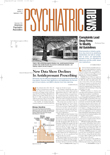Medical residents prescribed more advertised drugs and fewer over-the-counter medications if they had access to prescription drug samples than residents without access, according to a six-month study of 29 internal medicine residents.
Richard F. Adair, M.D., of the University of Minnesota and Abbott Northwestern Hospital and Leah R. Holmgren, M.D., of Abbott Northwestern tracked 390 decisions initiating drug therapy for the study, which appeared in the August American Journal of Medicine.
“This finding contradicts two widespread beliefs: that drug samples are inherently different from other forms of marketing, and that samples help patients manage drug costs in the long term,” wrote Adair and Holmgren. The finding raises “questions about whether drug samples belong in clinics where residents are learning or where low-income patients are receiving care.”
The residents at Abbott Northwestern in Minneapolis were randomized into two groups. Fifteen signed a standard permission agreement at the start of the postgraduate year granting them access to the sample cabinet. The other 14 signed agreements forswearing use of free drug samples and reminding them that hospital social workers could help patients obtain prescriptions.
Pharmaceutical drug representatives stocked the clinic sample cabinet but were not allowed contact with resident physicians. Nearly all the residents reported no interaction in the clinic with drug reps during the course of the study, although about half said they encountered reps elsewhere.
Residents randomized to use of the sample cabinet were less likely to initiate treatment with unadvertised (p=0.04) or with over-the-counter drugs (p=0.003) than residents assigned to no sample access, wrote Adair and Holmgren. Residents with access to samples were also less likely to prescribe inexpensive drugs, but this finding was not statistically significant (p=0.08). There was no difference in use of generic drugs.
“Because all four prospectively chosen endpoints were affected in a direction that would increase drug costs, it is reasonable to predict that the short-term economic benefit of free samples would be replaced by higher costs later on, considering the likely development of brand loyalty,” they wrote. They did not evaluate the appropriateness of the drugs that residents prescribed and did not measure medical outcomes.
“The fact that residents' prescribing habits change with access to drug samples is not a surprise,” said William Wood, M.D., a child psychiatry fellow at Massachusetts General Hospital and McLean Hospital and chair of APA's Committee of Residents and Fellows, in an interview. “An important next step is to examine whether access to drug samples leads to prescribing patterns that promote better or worse patient outcomes during treatment, whether patient access to optimal treatments is altered, and how cost-effectiveness analyses can help us better target prescribing patterns to get the biggest bang for the buck within a context of limited resources for mental health care.”
The availability and use of heavily advertised samples remains a troubling issue for many in medicine, one that demands discussion in residency training programs and within the field as a whole, said Wood.
The problem may be especially germane to psychiatry because psychiatrists are likely to prescribe medications to some patients for the long term, said Laurence Guttmacher, M.D., an associate clinical director at the Rochester Psychiatric Center and advisory dean and an associate professor of psychiatry and medical humanities at the University of Rochester Medical School, in an interview. A patient stabilized on samples of a new, expensive drug is likely to remain on it once someone is paying for it, ultimately increasing costs for the whole health care system.
Previous research has found that medical students, residents, and practicing physicians are heavily influenced by marketing techniques such as sample medications, despite their claims to the contrary, said Guttmacher.“ The capacity for denial is significant. Doctors say they are not swayed by pharma marketing, but all the data say it is effective.”
Nevertheless, he acknowledges the paradox in allowing residents to use samples, which allow access to drugs early in the years after the drug goes on the market.
“Residents want to use new medications to learn as much as possible about them, but it is not a wise habit to inculcate for practicing medicine,” he said. “We should be teaching residents good prescribing habits for a lifetime, not starting them off with bad habits.”
Those who prescribe medications must be trained to evaluate critically drug company marketing and sales pitches that pervade hospitals and the medical establishment, said APA President Steven Sharfstein, M.D., in an interview.“ For all residents, including psychiatrists, there has to be strong oversight and sensitization of the relationship between young doctors and the pharmaceutical companies. Hospitals and clinics should establish policies to guide their use.”
An abstract of “Do Drug Samples Influence Resident Prescribing Behavior? A Randomized Trial” can be accessed at<www.sciencedirect.com/science/journal/00029343> by searching under the August issue. ▪
